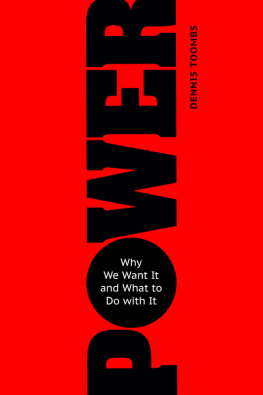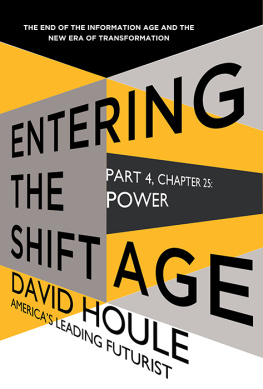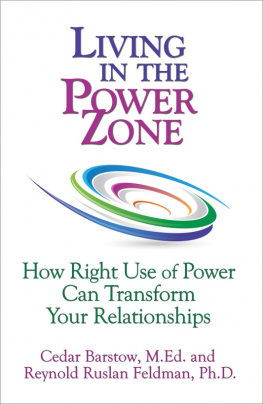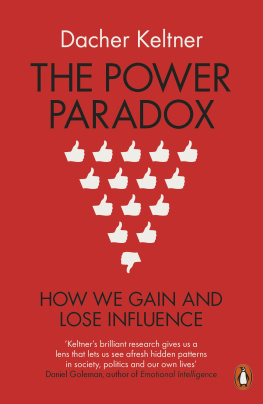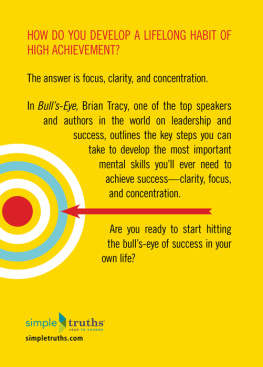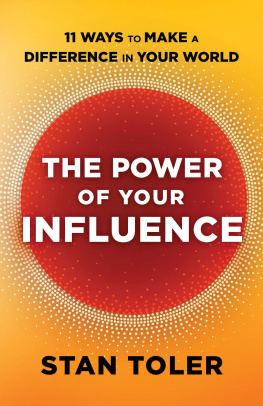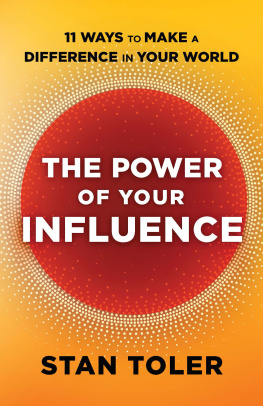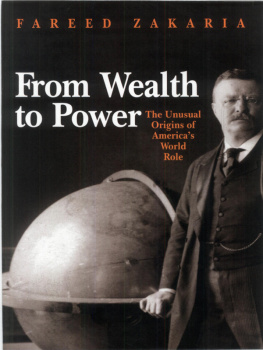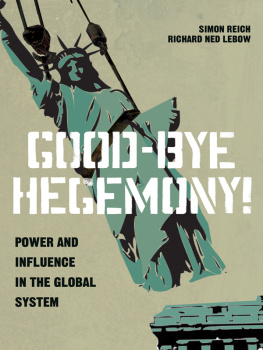Coming of age in a Texas border town was the beginning of a lifetime of multicultural experiences that shaped my ideas for this book. Over seven plus decades, too many people to count, much less acknowledge, influenced me, many of whom have probably forgotten about it long ago or were never aware. On a more personal level, thanks to my wife, Sharon Toombs, for her years of endurance, devotion, and help while I labored over the manuscript; my literary agent, Maryann Karinch, for patiently bringing me along in the world of commercial publishing; Nick Baudains for his technology advice; my survey government college students who taught me more than I no doubt was able to teach them; and finally the political activists of the world who sacrifice their time, personal health, and sometimes lives in demonstrating for a freer and more just society.
STRUGGLE FOR POWER
Human beings have not changed since prehistoric time. We have been involved in a continuous struggle for power over what there is to get, not only for material goods and services but also for respect, values, and control. This one lensa struggle for powerexplains all of human behavior, inside and outside of government. Its strength lies in its all-encompassing explanation, lengthy time span, and universality. All of us have numerous sources of power, many of which we are largely unaware of or don't use. Power reveals how abundant and diverse our power sources are, how to find and develop them, and how to become everything we are meant to be. Those of us who play politics frequently and best get more of what there is to get, working for pure good or evil, or more likely something between the two. Even if we avoid other people completely, we are in competition with nonhuman beings, our environment, and nature. Death is the only way to escape from the struggle for powerand even then, not entirely.
The approach taken here has an optimistic view of human nature, where good wins over evil. It focuses on the social, economic, and political goals that we have in common despite our differences over values, ideology, and public policylike how to achieve equality of opportunity and political freedoms. A just society is one in which all of us have the fundamental economic and political rights necessary to reach our full potential. Economic rights are education, healthcare, housing, food, clothing, and an environment free of crime and debilitating pollution. Important political rights are freedom of expression and religion, the right to form organizations and vote, equal treatment before the law and courts, and due process.
Of the economic rights, the two that are most crucial for equality of opportunity are education and healthcare. Though cost-effective in the long run, they are also among the most expensive rights and are likely to be only partially available, if not missing entirely. From an economic standpoint, more education leads to better-paying jobs, paying more in taxes to benefit society, and less likelihood of needing public social services or committing crimes. Healthcare correlates highly with education and economics. Healthy babies can develop their brains more fully; healthy children can learn more effectively; and healthy adults can work, earn money, and pay taxes. Imagine the miraculous and revolutionary changes that would occur if everyone on the planet had a quality education and healthcare!
A worldwide consensus supports equality of opportunity and the economic and political rights necessary for achieving it. Our major differences are over process not substance, not whether we should have these rights but how. Meaningful progress toward getting them will probably have to come from the general public up, rather than from the top or government down, because of (1) the increasing concentration of political power and wealth in the hands of the few and (2) our declining trust in corporate and government leaders. We the mass public have power. If like-minded people come together, we have power far beyond our numbers in the total population. Economic security, education, and good health help us move up the socioeconomic ladder. Political rights give us the opportunity to influence the important decisions over our lives.
We pursue power all of the time for many reasons. First and foremost, we struggle to have the material goods and services necessary for survivaladequate food, housing, clothing, medical care, and education, and a safe environment. Once we have the basics, most people want to improve their standard of living, to acquire increasingly more material possessions. We compete for power to fulfill our emotional needs, to have the approval, admiration, and love of others as well as self-respect. Some of us seek to connect with the past, which we do by studying history or our family genealogy. Others pursue religion because of their desire to find God. Philosophically oriented people focus on learning about the reason for our existence or becoming enlightened. Politicians want power to have position, title, and authority.
The ongoing struggle for power for material goods, services, respect, values, and control is politics in the broadest sense of the word. Respect is an acknowledgment and appreciation from others of our power, something that almost all of us seem to need, from law-abiding citizens to criminals. Values unlike facts can't be scientifically established. They are beliefs about the good and bad, desirable and undesirable, right and wrong. Examples are strawberry is better than chocolate ice cream, only one God exists, and eighteen-year-olds should have the right to vote. As much as possible, we seek control over ourselves and then in varying degrees over other individuals, groups, organizations, and the governments under which we livenational, state, and local. We strive to control our total environment, which includes our ecological system and inanimate objects as well as other human beings. We focus especially on circumstances that threaten our safety or lives, such as serious illnesses, animal attacks, deadly weather conditions, automobile accidents, and crime.
If questioned, most people would probably say that the basic source of conflict is competition over scarce goods and services like money, land, food, oil, drinking water, tickets to a championship sporting event or a sold-out rock concert, or the love of a significant other. The reality is that conflicting values are often at the heart of this competition. Is today's global warming human-made or the beginning of the next normal interglacial warming period? Is healthcare a human right, or should it be available only for paying customers? Should the life of endangered species take priority over water rights? Should we preserve the rainforest at the expense of oil production? Would a national registration of firearms law lead ultimately to government confiscation of all guns? Should racial minorities and women be given preferences to make up for past discrimination? Should girls be given the same access to education as boys? Which organized religion, if any, provides a true pathway to God? Does God in the traditional sense exist? In the abortion debate, when does a human egg become a person with full legal and political rightsjust before the sperm penetrates the egg; when the egg is fertilized; when the fetus is three, four, five, or six months old; or when the baby can survive on its own outside of the womb?
Sometimes science transforms values into facts. Even then, supporters on the losing side of empirical evidence may choose to reject the science. Despite Copernicus's finding in the sixteenth century that the earth circled the sun, many people and the Catholic Church continued to believe that the earth was the center of the universe. Epilepsy has long been considered by many a symptom of possession by the devil, evil spirits, or witchcraft. As recently as the twentieth century, people with epilepsy in some societies were thought to be contagious and were not allowed to marry or have children. In a startling congressional committee hearing in 1994, seven chief executive officers of America's largest tobacco companies testified that nicotine wasn't addictive. Despite scientific evidence to the contrary, some people still don't believe that man landed on the moon or that global warming is a reality.

